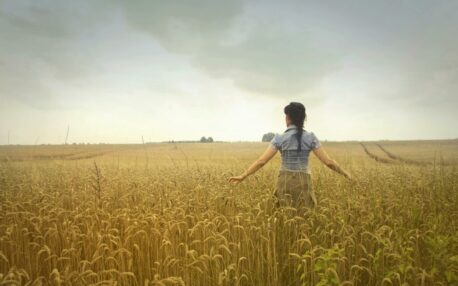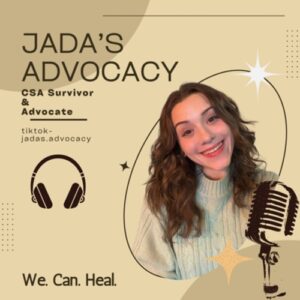Trigger warning
Please note, this piece contains material that may be distressing to some viewers. Contains mention of abuse of children and animals.
Definition:
Animal childhood sexual abuse or ACSA (sometimes called forced beastiality by law enforcement) is defined as a perpetrator coercing or forcing the child to engage in sexual acts with the animal. While beastiality involves a consenting adult and a non-consenting animal, ACSA differs because a perpetrator forces or coerces a child and animal to perform sexual acts together. Neither child nor animal can consent, and both are victims. Although this piece talks in terms of childhood abuse – its important to note that adults can also be victims.

“To those who have been through ACSA, I want you to know – YOU ARE NOT ALONE.
You are not what your abusers forced onto you, you are not what your abusers tried to make you believe you were. Recovery is possible and you are worthy of it.”
I became a survivor of ACSA during my early childhood when I was around 8-12 years old. For many years after this experience, I didn’t have words to explain what happened to me. Those experiences left me filled with shame and embarrassment. My stepfather would sit me on his lap while he watched illegal bestiality videos, which has left me traumatized and I still suffer from extreme flashbacks of the images he exposed me to as a little girl. He eventually sexually abused me with our family dog.
As a child, inappropriate videos and sexual encounters were so normalised that I didn’t see anything wrong or illegal with these behaviours. Until I was much older, I merely saw it as something “weird” people do. During the abuse, he would laugh and make it seem like me fighting to get away was a joke.
He knew he could use the things I loved to keep me silent. He would use the love I had for him as a father figure to keep me silent; I would often hear “You don’t want your mom and me to be in trouble do you?” or “If you say anything the family will be ruined”. He would also threaten that if I told anyone, I would “never see my little siblings ever again.”
I have experienced significant abuse throughout my entire childhood, but nothing was more humiliating or life-altering than being forced to have sexual relations with an animal you call your family pet. It has taken me almost a decade to openly discuss my experience with ACSA. This shameful secret I kept inside ate at me every single day of my life, and significantly impacted my mental health. I blamed myself so much that I attempted to take my life multiple times. I blamed myself for years and thought I didn’t deserve to be around animals, dogs in particular. I had a love and passion for animals and what my stepdad did to me made me feel unworthy of these dreams. I distanced myself from animals not out of fear but because I hated myself.
Shame is the number one thing that kept me silent for all those years. If someone had told me it wasn’t my fault and I wasn’t the person in the wrong, I feel like a lot of that shame would have dissipated. Abusers in these situations often want their victims to feel shame and add to it. Predators know that if their victim blames themselves, they will be less likely to speak up for fear that the public will blame them for what happened. I thought I was the one who hurt the animal and didn’t want anyone to shame me more than I was shaming myself. As a result, I stayed quiet exactly as my stepdad intended. Breaking the shame cycle is incredibly important, as it allows survivors to take their power back. It also involves putting responsibility and shame back on the abuser, where all that shame belongs. I needed to let go of the shame in order to find any sense of healing or recovery from what had happened to me.
When I started posting about my ACSA online, I was beyond scared of being shamed and bullied. I was barely ready to talk about it with my closest friends and family, but I knew it was something I NEEDED to do. I knew I had the courage to do it and knew it would help others like myself. I wanted to provide a safe space for survivors like those women who wrote the blogs provided for me. When I started sharing, the response I got was devastatingly beautiful. Devastating in the fact that thousands of ACSA survivors filled my comment sections and DM’s sharing their own personal experiences. For the majority, it was the first time they had ever shared. And beautiful because so many survivors were brave enough to come forward and talk. The amount of people I get constantly telling me they “never thought anyone else went through this” or how they thought “they would take this to their grave” is what keeps me posting about ACSA. I also know that the ignorance and stigma surrounding ACSA will never end if we don’t speak up about it. I want to make a difference for survivors, like other survivors have done for me.
To those who have been through ACSA, I want you to know – YOU ARE NOT ALONE. I know it might feel like your image of the world and life is forever changed in the worst possible ways. However, I just want anyone who experienced ACSA to know that recovery is possible and you are worthy of it. You are not what your abusers forced onto you, you are not what your abusers tried to make you believe you were. You do not always have to feel shame, blame and anger as those feelings belong to the abuser and no one else.
ACSA is a sensitive topic just like any sexual abuse and we need to be mindful when speaking to survivors or about survivors. When ACSA disclosures are made, many people don’t know how to respond or what to say. I would like people who need more information to ask compassionate questions and have empathy and be trauma-informed. When I’ve told people about my experiences, many react with shock, disgust and confusion. Or they will assume its beastiality and/or blame me for the abuse – when in fact both I and the animal were victims.
Sometimes people will also bring up the animal first and this makes me feel like my life and story was less valuable compared to the animal. Due to ignorance and lack of awareness, people’s responses to disclosure can leave survivors feeling triggered, disheartened and more hesitant to disclose in the future. Awareness is so important, and I want to encourage people to spread awareness about what ACSA is, so that more survivors will have a safe space to disclose and share their stories.
I want ACSA definitions added to well-known websites such as RAINN and other CSA/SA pages. The thing that kept me silent the longest was not finding a single person or website explaining what I had gone through. When we have a name for what we experienced and hear stories from other survivors it makes us feel safe enough to come forward. It’s common that survivors of this form of abuse feel like they are the only ones in the entire world who live with this secret. Even when I was old enough to know I was not to blame my brain still told me I was because I felt so isolated and alone.
ACSA needs just as much awareness as child sexual abuse and other crimes against children. The only difference is that this abuse also involves sexually abusing an innocent animal. Most of society lacks awareness of ACSA. Most people don’t think such heinous acts could be done to animals and children, and its a difficult and challenging reality for many to face. However, if we are to create change and end it, we need to raise as much awareness of it as possible. And this happens by talking about it with as many people as we can.
And this is why I want to share my story. I would like other ACSA survivors to feel heard and less alone. And I want to teach people what ACSA is and how we can prevent it and help the victims – both children and animals.
Additional sources/resources
What is Animal Childhood Sexual Abuse?
Jada’s Story – Surviving Animal Childhood Sexual Abuse
Anon Story – Surviving Animal Childhood Sexual Abuse

Author – Jada
Jada is a survivor who shares her lived experiences to help bring awareness. Her goal is childhood sexual abuse prevention, ending rape culture and discussing taboo subjects to help others feel less alone and inspire healing.